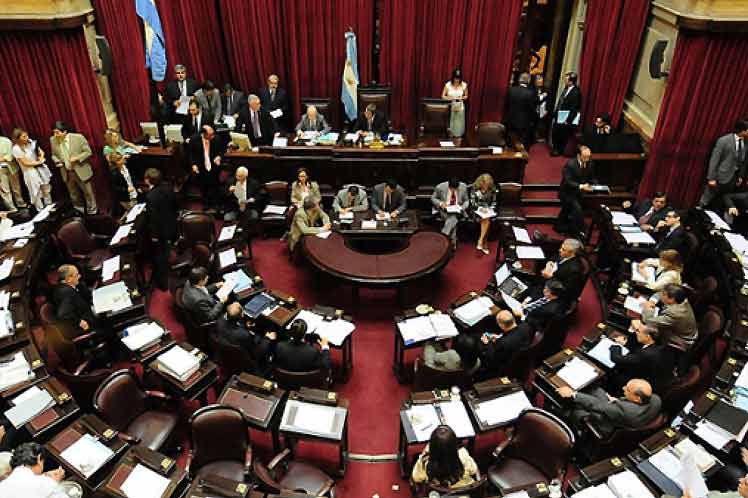The Argentinean Senate will today begin its analysis in commissions of the so-called Omnibus Law, which establishes the delegation of legislative powers to President Javier Milei and received strong criticism from social and trade union organisations.
After being passed by the Chamber of Deputies, the package of regulations will be debated by the senators in charge of Constitutional Affairs, General Legislation and Budget and Finance, starting at 14:00 local time, and La Libertad Avanza hopes to be able to bring it to the floor next week.
As part of the stage that begins this day, Interior Minister Guillermo Francos, Deputy Chief of Staff José Rolandi and Finance Secretary Carlos Guberman, among others, have been invited to appear before the committees.
Last week, the lower house of Congress passed the Bases and Points of Departure for the Freedom of Argentines Act with 142 votes in favour, 106 against and five abstentions.
It grants Milei powers for one year under the pretext of declaring a public emergency in administrative, economic, financial and energy matters.
It also provides for the reform of the state, the privatisation of public companies, the modification of the labour system, the replacement of severance pay by a severance fund that will make each worker pay for his or her own dismissal, and changes in the pension system that will make it possible to raise the retirement age for women, among other measures.
These decisions were rejected by deputies from Unión por la Patria, Frente de Izquierda and some from other groups, but these votes were not enough to reject the bill.
Through his profile on the social network X, the secretary general of the Association of State Workers, Rodolfo Aguiar, stated that the law «puts the nation on its knees and the state at the service of plunder».
In terms of public employment, it is a step backwards to the 1990s. They passed a law that ruins the lives of millions of citizens. In its more than 200 articles, there is not a single measure in favour of wage earners, pensioners or popular sectors. Everything for those at the top and nothing for those at the bottom, he said.
He also warned that the regulation stimulates unregistered employment, extends the trial period and reduces the legal protection of labour.
For his part, the former Minister of Defence, Jorge Taiana, said that this is a dark time for those who are striving for a better future.
This law takes away rights, returns to the 90s with privatisations, dissolves agencies and delegates powers to a President who praises financial crime and wants to destroy the state, he said.




